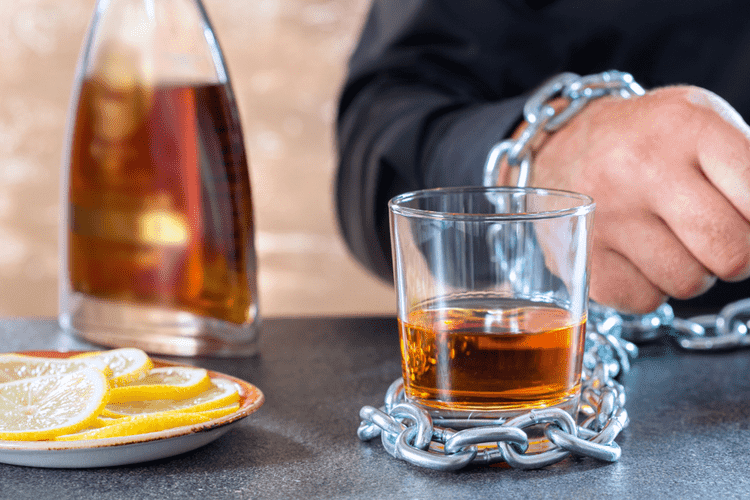You may experience alcohol withdrawal symptoms when you quit drinking alcohol. This can happen whether you’re quitting alcohol cold turkey or tapering. It can be tempting to just “rip off the Band-Aid” when getting sober, but tapering off alcohol is often much safer—and https://iselanlari.az/4765-executive-chef.html much less stressful. Rather than quitting drinking abruptly (or “cold turkey”), many professionals recommend gradually reducing your drinking (or tapering) over time. This can give your body the chance to adjust, helping you avoid the worst of withdrawal symptoms.
Severe symptoms of alcohol withdrawal
Tapering gradually lowers the amount of alcohol that you use over time. This lessens the severity of withdrawal symptoms, as there is not an abrupt or dramatic change. Tapering will normally create less severe alcohol withdrawal symptoms but will spread them out over a https://selfimprovementguide.net/managing-and-overcoming-stress-and-anxiety/ prolonged period. Essentially, tapering provides less intense withdrawal symptoms but over a longer amount of time. If you are a frequent drinker determined to reduce or stop your alcohol intake, the safest way to do this at home is through a gradual tapering process.
What Does “Tapering Off Alcohol” Mean?

Creating a tapering schedule you can stick with is a crucial part of weaning yourself off alcohol. The best schedule varies based on how much you drink each day and your overall health. As mentioned above, we strongly recommend speaking with a doctor to ensure your plan is a safe one, and won’t cause dangerous withdrawal symptoms. The main downside of cold turkey is how unpleasant and risky it can be. If you drink heavily, alcohol withdrawal symptoms can be harsh, dangerous, and even fatal. For this reason, it’s generally best to avoid quitting abruptly, or at bare minimum speak with a doctor first and have someone looking out for you.
Recognize Dangerous Withdrawal Symptoms

When you are physically dependent on a substance like alcohol, your body adapts accordingly. An alcohol taper is a way to wean yourself off alcohol and avoid withdrawal symptoms. Although all forms of alcohol cessation should be done with medical guidance, tapering your alcohol intake may allow you to self-wean from drinking at home. You may find success decreasing your number of drinks by a set amount each day.
- Tolerance, dependence, social habits, setting, the biology of the individual and more must all be considered.
- However, it may be suitable for someone with a lower risk of experiencing alcohol withdrawal, or a person who has access to medical professionals at home.
- When the alcohol is completely taken away then this adrenaline and its cousins are left to run rampant in the brain.
- This condition most often occurs when someone who has long-term alcohol dependence stops drinking cold turkey.
- Individuals who’ve consumed higher amounts of alcohol over time can develop life-threatening complications when trying to quit.
- If you go through alcohol withdrawal multiple times, a kindling effect can occur.
- If you try a slower taper, you risk dragging it out too long and decreasing your chances of quitting.
If you drink heavily on a regular basis, it can be dangerous to stop alcohol cold turkey. For this reason, you should not suddenly quit drinking without talking to your doctor. The consequences of quitting alcohol cold turkey can be serious and lead to alcohol withdrawal syndrome, which can be fatal in severe cases. If you experience severe withdrawal symptoms while tapering off alcohol, adjust your plan. The goal of tapering is to make the withdrawal process safer and more bearable.
Don’t Quit Weed or Cigs (yet)
- Finally, finding a therapist or a recovery coach can help you develop new coping mechanisms and move forward in your life.
- It is important to only attempt a taper while under a doctor’s care.
- In contrast, in-patient care can be more beneficial and less expensive in the long-term.
- Someone should typically only direct taper if their drink of choice is beer with a low alcohol percentage.
- These factors can make one person’s taper last longer than another person’s taper.
Although I didn’t experience any seizures, I certainly wouldn’t recommend it. Some people choose to taper more quickly by cutting the amounts in half–for example 20, 10 5, 2, 0. But if you start having major withdrawal symptoms like bad shakes or pulse over 100 or high blood pressure you are tapering too fast and should slow it down. Monitoring you pulse and blood pressure can be a very good idea while you are tapering especially if you have high blood pressure.
Minimized Risk of Alcohol Withdrawal Symptoms
Unfortunately, alcohol tapering has not been extensively studied. This means that there is little data about the best way to taper your drinking. However, some groups have published http://kgpi.ru/katalog/priemniki-kupyur/132921.html tapering examples to assist those trying to quit drinking. You don’t have to mention anything about your drinking if you don’t want to, but make sure you’re in good shape.
What Does It Mean to Taper or Wean off Alcohol?
- Tapering off alcohol involves gradually reducing the amount of alcohol you drink.
- They can help you decide if tapering is the safest option for you.
- If you think you’re tapering too quickly, it’s okay to slow down.
- A standard (750 ml) bottle of wine at 12% alcohol contains 5 standard drinks.
- This will help you figure out a baseline to start your taper.
These complications can develop within a few hours or days and appear in the form of seizures, delirium tremens (DTs), and hallucinations, sometimes even leading to death. It’s always best to speak with a healthcare provider when changing your relationship with alcohol. Every person has unique needs, and tapering off may not be an adequate solution to reduce or stop drinking. For people who moderately consume alcohol, tapering off may be a good option.
Are you tapering because you physically depend on alcohol, or are you tapering because you want an excuse to drink longer? If you can get through a day with no physical withdrawal symptoms, you probably won’t need to taper. If you get moderate tremors or start hallucinating six hours after your last drink, you probably need to taper.
